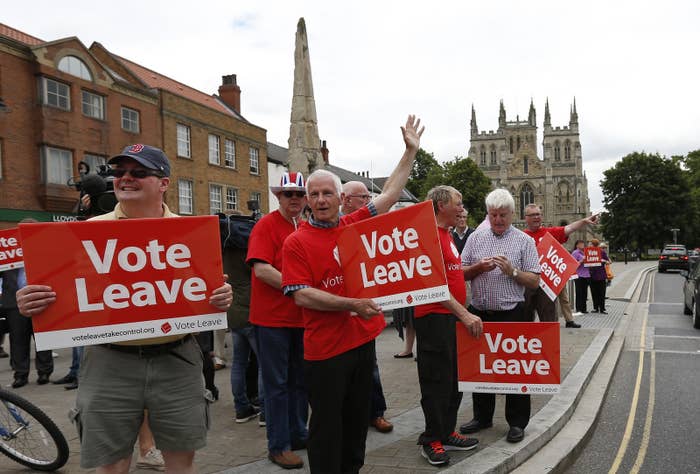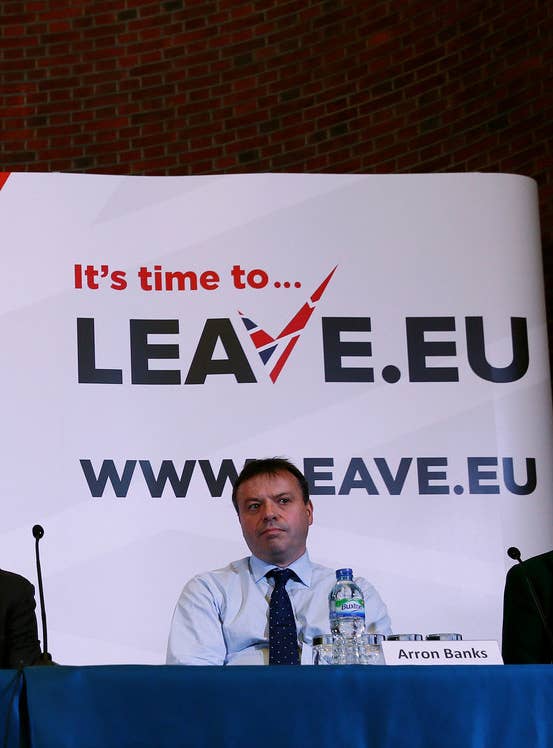
British regulators should be given more control over Facebook and Google to stop the spread of “fake news” — including the power to audit their jealously-guarded algorithms — an influential parliamentary committee will recommend.
The interim report from the House of Commons Digital, Culture, Media and Sport Committee is due to be published on Sunday, but on Friday afternoon a leaked copy was published in full online by former Vote Leave campaign strategist Dominic Cummings.
In the 87-page document, the committee warns that democracy is under threat from the spread of disinformation on social media. “Arguably, more invasive than obviously false information,” the report says, “is the relentless targeting of hyper-partisan views, which play to the fears and prejudices of people, in order to influence their voting plans and their behaviour.”
It adds: "We are faced with a crisis concerning the use of data, the manipulation
of our data, and the targeting of pernicious views."
The MPs recommend that Theresa May’s government implement a series of measures which, if adopted, would subject the technology platforms which now dominate the flow of information online to a far greater level of scrutiny by government bodies than ever before.
The DCMS committee, which has been conducting a wide-ranging investigation into so-called fake news since early 2017, warns that the current legal and regulatory regime is no longer fit for a digital media landscape that has changed profoundly in recent years and has proven to be vulnerable to manipulation, including by foreign states determined to disrupt democratic processes.
Addressing the potential for Russian interference in British elections, the MPs single out the involvement of the businessman Arron Banks in the 2016 referendum.

Banks, a close ally of Nigel Farage, was the biggest single donor in the referendum, giving £8.4 million to the Leave.eu campaign. During its investigation, the committee says, it saw emails that reveal Banks “had many meetings with Russian officials, including the Russian ambassador [to the UK]” in the run-up to the 2016 referendum.
It was unclear, the committee says, where Banks had obtained the millions that he donated to the Brexit cause. “He failed to satisfy us that his own donations had, in fact, come from sources within the UK,” the report said. It urged the Electoral Commission, the UK’s elections watchdog, to investigate where Banks’ donations came from “to verify that the money was not sourced from abroad”.
The commission should put limits on the amount of money an individual can donate in a British election campaign, it says.
Among the regulatory measures the DCMS committee proposed is giving British watchdogs the power to examine the algorithms used by the tech platforms "to ensure they are operating responsibly", drawing a comparison to the auditing of company finances. Given that tech companies jealously guard their proprietary technology, such a move would be fiercely resisted by the Silicon Valley titans.
Current regulatory rules which require TV and radio broadcasts to be accurate and impartial should also be extended to online publications, to stop the spread of disinformation on the internet, the report says.
Social media companies should be made liable for harmful and illegal content that is shared on their platforms, the committee says — potentially opening them to legal claims by regulators and individuals or companies who are affected by the material shared on their platforms.
The report also made clear the MPs’s frustrations with Facebook. “Facebook has all of the information," it says. "Those outside of the company have none of it, unless Facebook chooses to release it. Facebook was reluctant to share information with the Committee, which does not bode well for future transparency.”
In addition to boosting its legal powers, the government should give the UK Information Commissioner’s Office more funding and resources so that it is equipped to scrutinise the tech companies, the report concludes. The tech companies could be made to pay for this through a levy.
MPs on the committee propose several measures aimed specifically at regulating the use of digital advertising in political campaigns, following the controversy about the use of targeted Facebook advertising in the run-up to the 2016 referendum on Britain’s membership of the European Union.
The report urges the government to make the provenance of digital advertisements clearer and to restrict the micro-targeting of advertising to Facebook users, so that the claims being made by campaigners online are subject to greater scrutiny.
There should be a public register of all political advertising, and advertisements should carry clear labelling so that the origins are clear to users.
Addressing potential Russian interference in elections, the DCMS committee urged the UK government to reveal what investigations are currently being undertaken. Britain should not rely on the US special prosecutor Robert Mueller to uncover meddling by Russia in our domestic political structures.
“It would be wrong for Robert Mueller’s investigation to take the lead about related issues in the UK,” the MPs said.
The leaking of the report by Dominic Cummings is his latest public clash with the committee and its chair, Tory MP Damian Collins. Cummings refused a formal summons to give evidence to the committee and is currently awaiting censure by Parliament.
Cummings blog on DCMS report - and his explanatory gloss https://t.co/HfmK1VkdRa
The former government adviser and Brexit strategist used his blog post accompanying the leaked report to accuse the MPs of "knowingly/incompetently making false claims regarding Vote Leave".
He claimed he had been leaked a copy of the report by someone "appalled" at the committee's "dishonesty" and so had decided to publish it in full.
